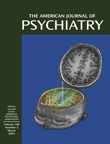Abstract
OBJECTIVE: The objective of the present study was to evaluate the long-term efficacy and safety of capsulotomy in patients with anxiety disorders. METHOD: Twenty-six patients who had undergone bilateral thermocapsulotomy were followed up 1 year after the procedure and after a mean of 13 years. Primary diagnoses were generalized anxiety disorder (N=13), panic disorder (N=8), and social phobia (N=5). Measures of psychiatric status included symptom rating scales and neuropsychological testing. Ratings were done by psychiatrists not involved in patient selection or postoperative treatment. A quantitative magnetic resonance imaging (MRI) evaluation was conducted to search for common anatomic denominators. Seventeen of the 23 patients who were alive at long-term follow-up were followed up in person, and one was interviewed by telephone; the relatives of these 18 patients were interviewed. RESULTS: The reduction in anxiety ratings was significant both at 1-year and long-term follow-up. Seven patients, however, were rated as having substantial adverse symptoms; the most prominent adverse symptoms were apathy and dysexecutive behavior. Neuropsychological performance was significantly worse in the patients with adverse symptoms. No common anatomic denominator could be found in responders in the analysis of MRI scans. CONCLUSIONS: Thermocapsulotomy is an effective treatment for selected cases of nonobsessive anxiety but may carry a significant risk of adverse symptoms indicating impairment of frontal lobe functioning. These findings underscore the importance of face-to-face assessments of adverse symptoms.



